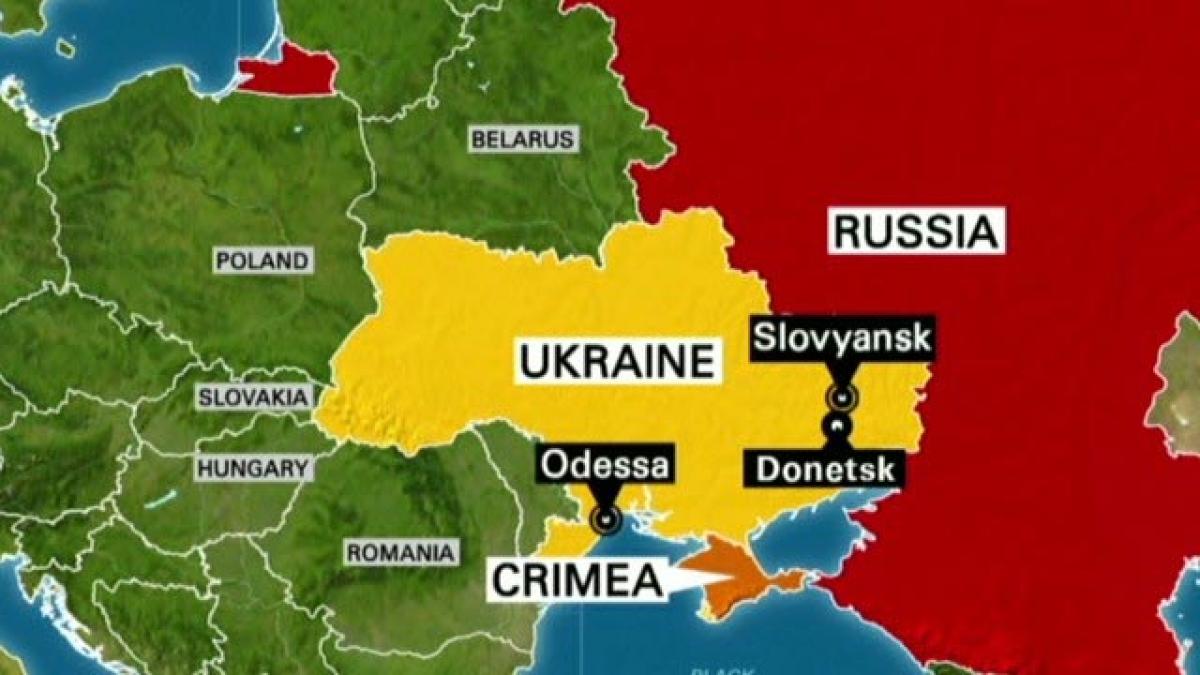Live
- Now, transcribe voice messages into text on WhatsApp
- Collector assures all help to Gulf victim
- Crop loans above `2 lakh will be waived soon: Ponnam
- Key sections in CLAT exam
- Destiny Led Me to Music: Yamini Gowribhatla
- After 26 years, man held for killing infant son
- Resolve public grievances on spot: Collector
- How Groundwater Depletion Is Shifting Earth’s Pole and Impacting Our Future
- Textiles parks to be set up in Anantapur & Kurnool dists
- 2nd batch of capacity building programme begins at IIM-V
Just In

Ukraine has said it thinks Vladimir Putin is planning a new invasion, and it\'s not hard to see why: the Russian leader has built up troops on its border and resumed the hostile rhetoric that preceded his annexation of Crimea two years ago.
Ukraine has said it thinks Vladimir Putin is planning a new invasion, and it's not hard to see why: the Russian leader has built up troops on its border and resumed the hostile rhetoric that preceded his annexation of Crimea two years ago. But despite appearances, some experts say Putin is more likely seeking advantage through diplomacy than on the battlefield, at least this time around.
"It's about sanctions," Andrey Kortunov, director-general of the Russian International Affairs Council, a Moscow-based foreign policy think-tank close to the Russian Foreign Ministry. For two years, Russia has been under US and EU sanctions over its annexation of Crimea and support for the separatists in eastern Ukraine. European leaders say the sanctions cannot be lifted unless the Minsk peace deal is implemented, but for now it looks moribund, with fighting occasionally flaring and both sides blaming each other for failing to implement truce terms.
At a summit in Minsk on 11 February 2015, the leaders of Ukraine, Russia, France, and Germany agreed to a package of measures to alleviate the ongoing war in the Donbass region of Ukraine. The talks that led to the deal, overseen by the Organization for Security and Co-operation in Europe (OSCE), were organised in response to the collapse of the Minsk Protocol ceasefire in January–February 2015. The new package of measures is intended to revive the Protocol, which had been agreed to on 5th September 2014.
The peace plan includes: ensuring immediate bilateral ceasefire; decentralisation of power, including through the adoption of the Ukrainian law in Donetsk and Luhansk Oblasts; permanent monitoring of the Ukrainian-Russian border and verification by the OSCE with the creation of security zones in the border regions of Ukraine and the Russian Federation.
There is no reason to lift the European Union's sanctions against Russia as Moscow has not fulfilled all of its commitments under the Minsk peace plan, feels Germany. The EU agreed in June to extend energy, financial and defense sanctions on Russia over the conflict in Ukraine until the end of January next year. Russia has repeatedly accused Ukraine of not honoring its obligations under the peace deal. Ukraine says for its part that Moscow is the one stirring trouble in eastern Ukraine by backing pro-Russian separatists there. Moscow denies that.

© 2024 Hyderabad Media House Limited/The Hans India. All rights reserved. Powered by hocalwire.com







